
Learning Through Fun – 5 Amazing Games That Teach Coding
It’s almost impossible to get my 5 year old interested in good old building blocks and yet, he can spend over 2 hours doing nothing but constructing castles and bridges in Minecraft. Let’s face it: videogames have become the toys of our kids’ generation whether we like it or not. While it might be impossible to make them play games we’d like them to, there are more and more products that manage to be both fun and educational. Here’s the list of our favorite picks:
1. Code Monkey
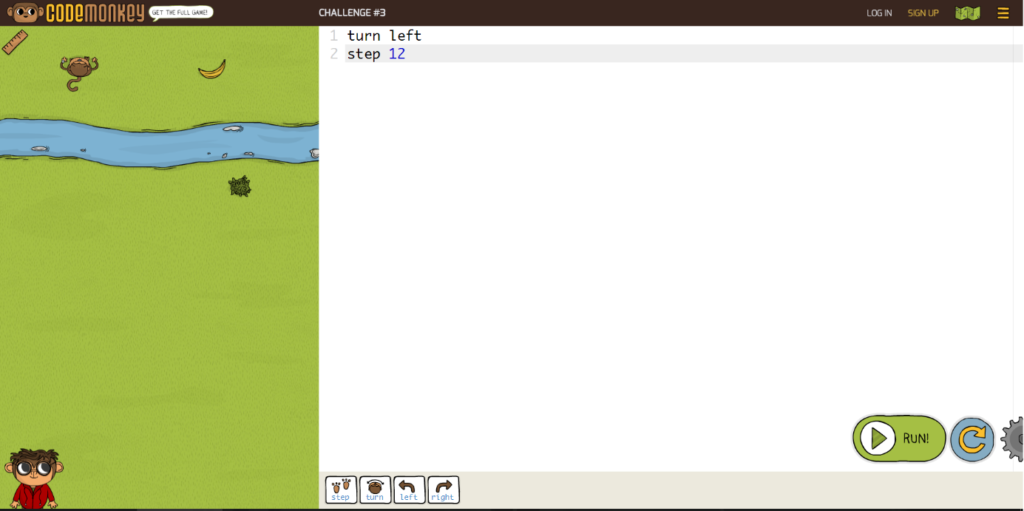
Let’s start with the simplest one. Code monkey is aimed at children old enough to read and write on a keyboard. The game starts with a story of an unfortunate monkey who got a bag of bananas stolen by a bigger, and without doubt evil, ape. Our friend decides to get his favorite food back and goes on an epic banana retrieving quest.
The game is divided into stages. In each player controls the protagonist by writing commands such as “walk 10 steps” or “turn right”. Levels increase in difficulty and so do the programming tasks. Every few stages a new obstacle is introduced, forcing the player to keep inventing new ways for the monkey to get to a banana.
The game is web based and easily accessible. Players who want more can buy the full version that includes more challenges and levels.
2. Cargo Bot
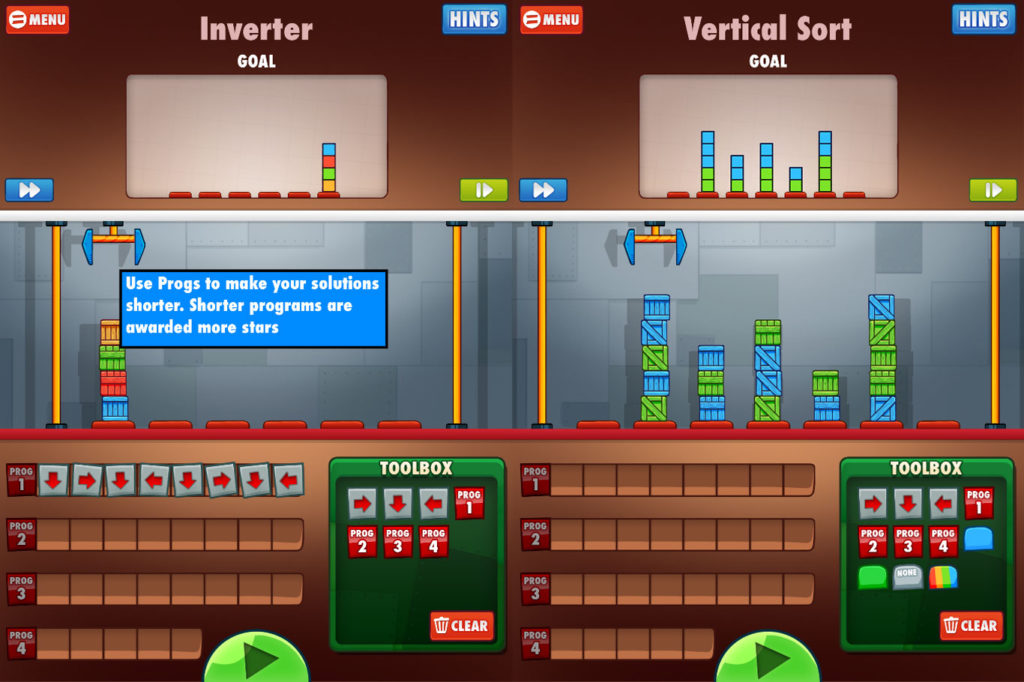
Cargo bot offers completely different approach and can be considered more complicated than Code Monkey. The game is a puzzler app for smartphones and tablets. The authors boast that it was created entirely on an iPad.
Player takes control of a crane (a machine, not an animal). Each stage is filled with crates that need moving. This is done by writing simple programs made of arrows showing the crane how to act. The game starts fairly straightforward but quickly ramps up the difficulty. Children are introduced to loops and writing several programs at the same time. Later levels require them to arrange parcels in certain sequences and are often really tricky to figure out. Despite that, the game doesn’t feel frustrating and plays more like a typical smartphone puzzler where figuring out the proper solution gives satisfaction and makes you crave for more.
3. Code Combat
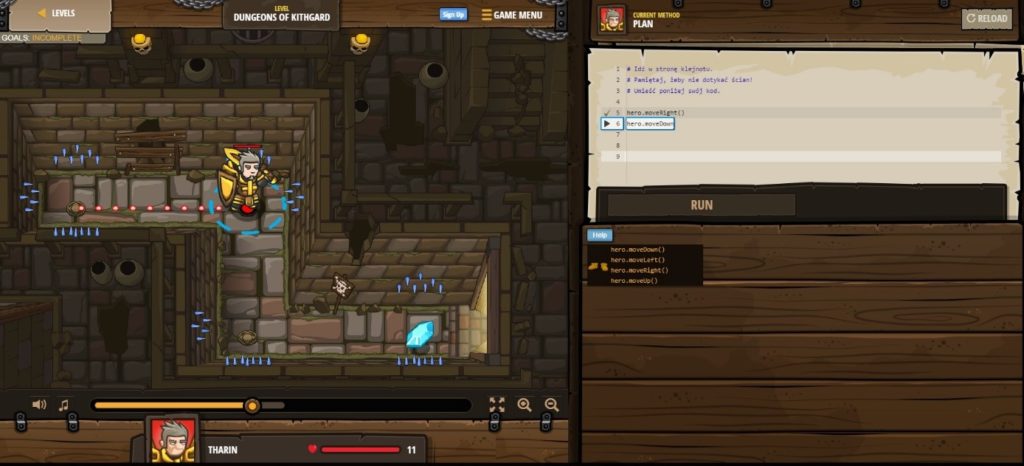
Comparing to previously described games, this one on a completely different scale. The authors managed to create a huge RPG inspired by hack and slash video games while devoting it entirely to teaching kids how to code.
Players start by picking a character from 2 available at start and equipping it with gear. After that they begin their journey through many fantasy stylized lands and dungeons while collecting weapons and tools allowing them for further survival. The character is controlled by writing code, similarly to Code Monkey. Each item found opens up new coding command and possibilities. Heroes gain experience and level up just like in a classical RPG. Everything is served with cartoony graphics and an atmospheric soundtrack.
Currently the game features six different worlds, each introducing more complicated coding concepts such as: loops, variables, syntax, input handling, string comparison, modulo and more, making it one of the most advanced games in this category.
The game is web based but it’s possible to make an account and save your progress. Authors encourage schools to use their creation during IT related classes to do away with old boring teaching methods.
4. Robot Turtles
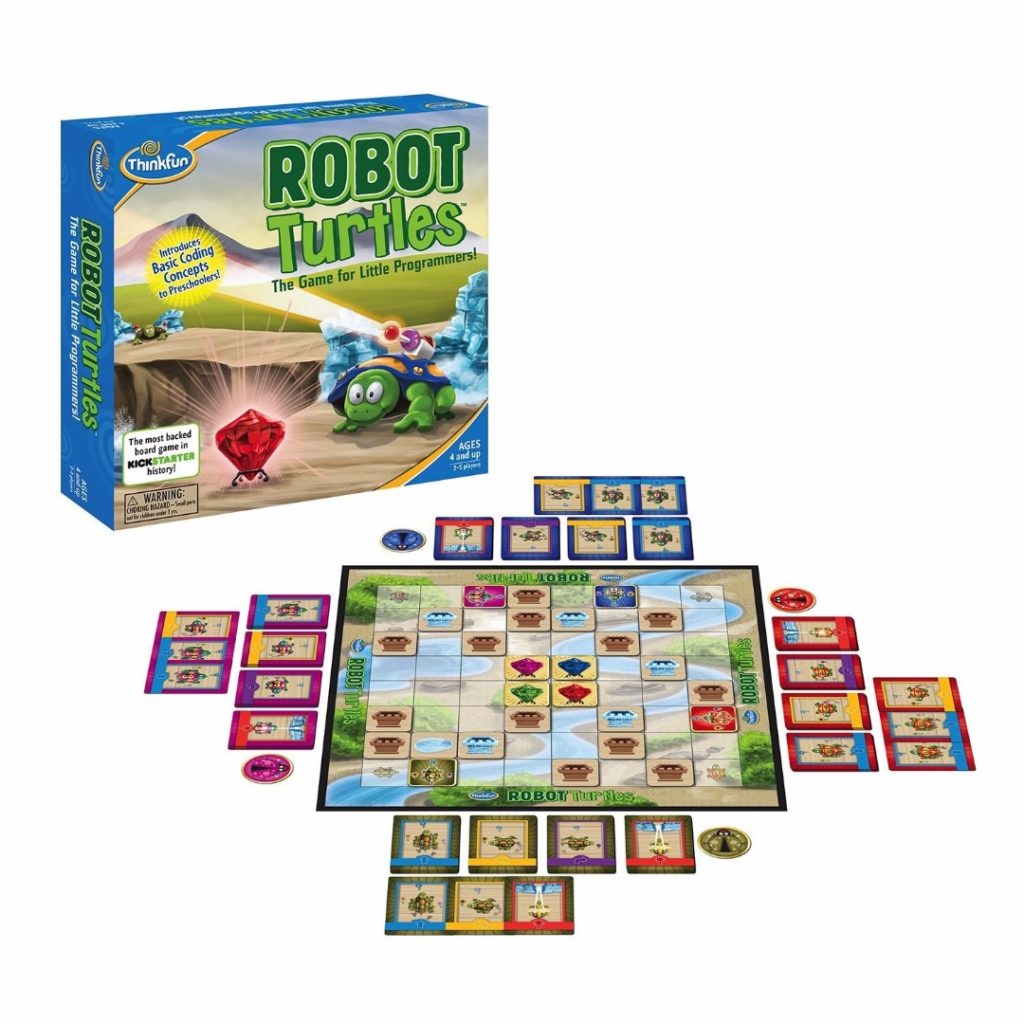
Robot Turtles was created by a seasoned programmer and a proud father of twins. What separates it from other coding teaching games is the fact that it’s a… board game. That’s right, these still exist and according to the author, are able to get kid’s attention as successfully as digital ones. Jokes aside, board games are going through a renaissance as of late and using them to teach programming is a one neat idea.
What started as a crazy idea ended up being the most backed board game of all time on Kickstarter. Simple rules of Robot Turtles allow to get a grasp at core concepts of programming even at the age of four.
The game consists of a board and a set of cards. Each player takes control of one turtle and has to reach a colorful jewel in the middle of the board. This is done through the use of command cards which tell the turtle whether it is supposed to move forward or turn. The game also requires a “turtle mover”. In the beginning it’s usually a parent or a teacher who keeps moving the turtles according to commands given by the players. “Bug” card allows kids to undo their moves.
The game does a great job at introducing young children to basic concepts related to programming such as commands, bugs and plenty of others. The entire idea is based on the Logo programming language and features additional sets of rules and obstacles for older or more advanced players.
5. Photon

After classic style video games and physically touchable board games, Photon is something that meshes both ideas into one. The method consists of a smartphone/tablet game app, and a toy robot that makes heavy use of said device.
The robot develops along with the progress in the game. Players grant it more functionalities by clearing stages that introduce them to concepts of programming: from most basic to the advanced ones. The toy is aimed at preschoolers and elementary school kids and includes RPG and multiplayer elements to keep them motivated and invested in the learning process.
The biggest advantage is seeing actual proof of gaining programming related skills. As kids learn more they can witness their robot learning to speak, see, move and distinguish between light and dark.

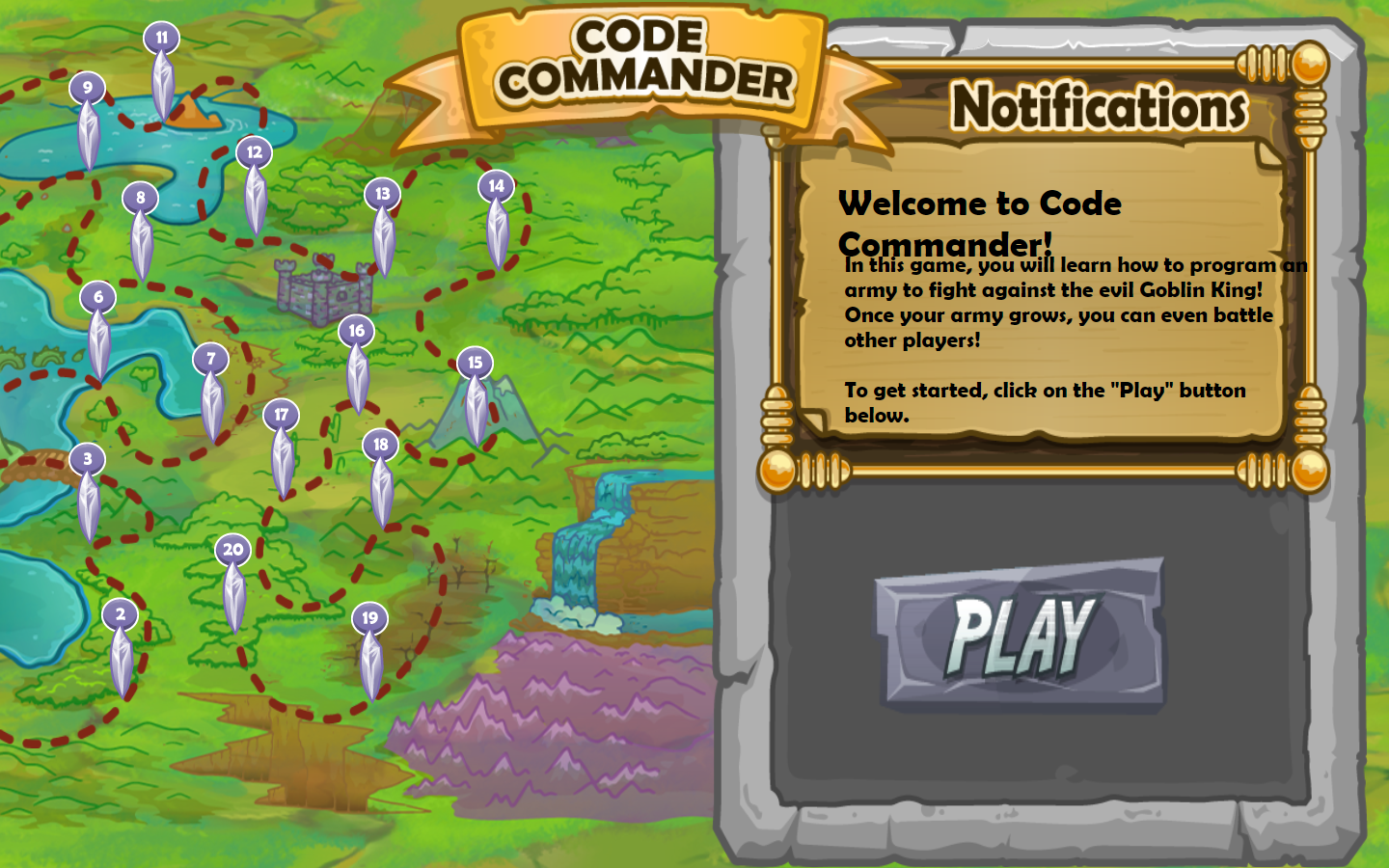

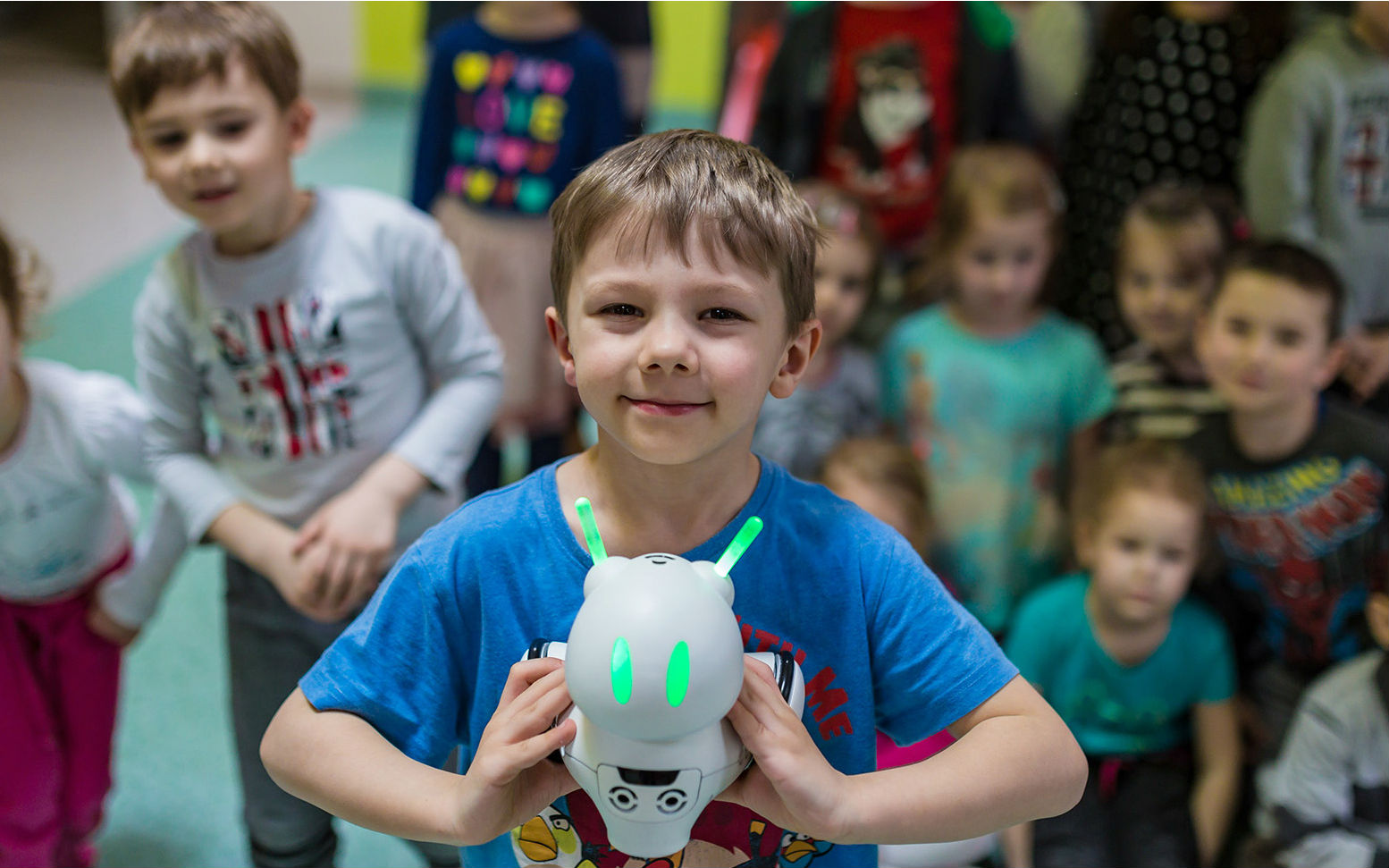
TechyKids Canada
Coding games like these are perfect for kids to lean and understand basic coding fundamentals. It makes learning fun and also help to cement their knowledge. Thanks for sharing!
TechyKids Canada
Games are a great way of sparking a child’s enthusiasm towards coding. The list which you have shared is very interesting and would help many to get their kids started with coding. Thanks for sharing!